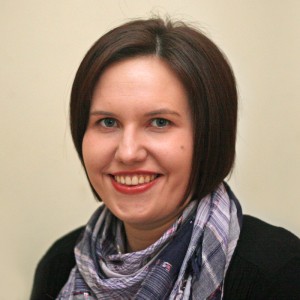
Leaders of Tomorrow is a series of short interviews with new librarians and library school students. These are the people I’m watching and I am sure we’ll see great things from them.
Meet Jo Alcock
Jo recently completed her dissertation for her MScEcon Information and Library Studies, congratulations! Jo is an evidence based researcher for Evidence Base at Birmingham University. She is active on several professional committees and has been publishing her research since 2009.
I met Jo through twitter, sadly, we completly missed each other at ALA Annual but I have high hopes that we’ll manage to meet at the next one!
Titter: @joeyanne
Website: Jo Wally’s Current Website (Updated 2023)
1. How did you first become interested in librarianship?
For as long as I can remember I’d wanted to be a teacher, but as the curriculum within schools in the UK changed I decided it wasn’t for me. I knew I wanted to stay in education so after finishing my degree I spent some time in a school library and absolutely loved it. After a brief spell in public libraries, I moved into academic librarianship and am now a researcher at Evidence Base, Birmingham City University (UK).
1a. If you had a previous career please tell us a little about it and your transferable skills.
No previous career but I had numerous customer service facing jobs whilst I was studying; barmaid, bakery supervisor, McDonald’s. This focus on delivering a high level of service (well, maybe not at McDonald’s but I tried my best!) provided me with customer service skills necessary in a library service. I was also a gymnastics coach and club captain on the gymnastics team at University; those experiences taught me a number of communication skills and people management skills.
2. How would you describe yourself in 5 words or less?
Librarian, researcher, CILIP/ALA activist.
3.? What do you see as some of the major challenges facing librarians in the coming years?
Establishing ourselves in the most effective position for helping our users. At the moment I think we’re trying to do too much and we’re not excelling at anything. I’d like to see us focus our efforts into refining the services we offer to make it clearer to all involved what we do (and basing this service offering on the needs of our users).
4. What would you like to accomplish or work towards as a librarian?
Having moved into the research world, I hope to be able to help librarians equip themselves with the skills and knowledge necessary to serve their community of users. I’m a strong believer in the value of professional networks such as those facilitated by organisations like ALA and CILIP (UK) and aim to help build connections within the profession and enable sharing of good practice – both by disseminating my research findings and also through my voluntary positions on committees.
5. When you aren’t on the clock how do you like to relax?
Since becoming a librarian I seem to have morphed into a stereotypical librarian. When I’m not cross stitching or learning a new craft (I’m currently trying to learn to crochet), I’m playing with my cats or going for walks. I do also love a bit of trashy TV to unwind though!


